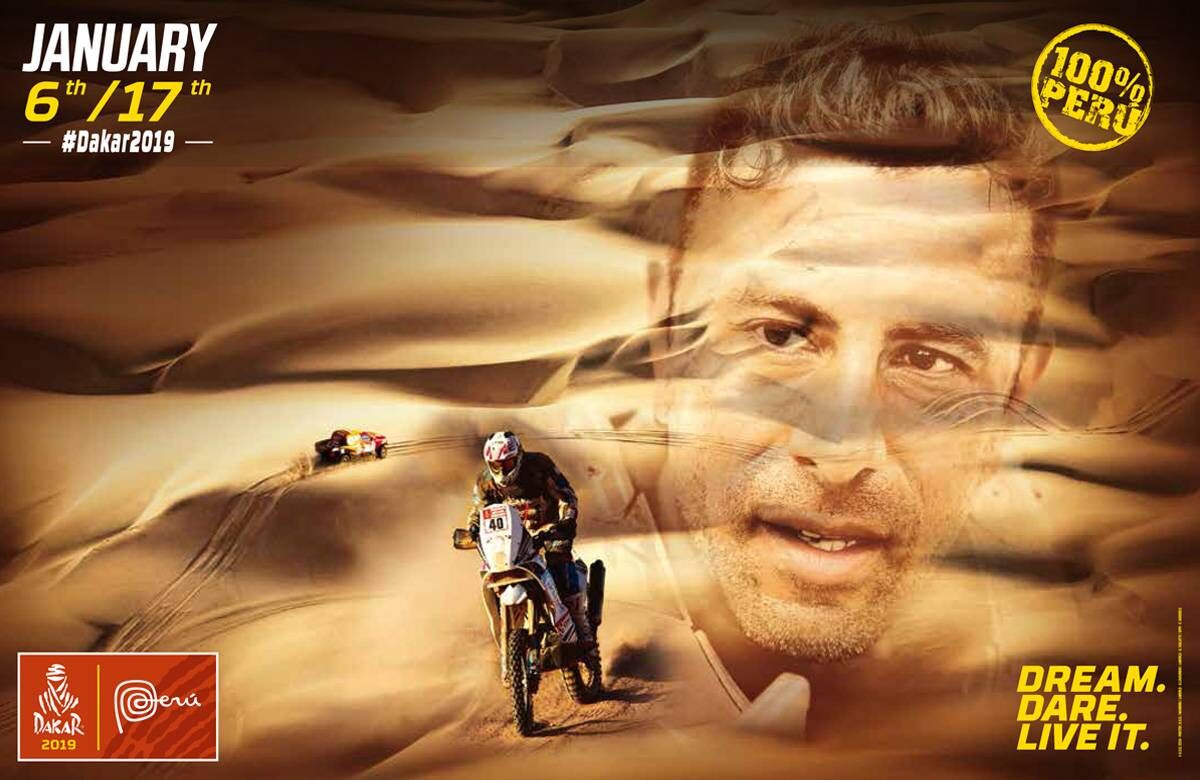Dakar 2019 will begin on January 6 in Peru
The 41st edition of the most grueling motorsport rally in the world will be a ten-stage, eleven day rally which will kick start in Lima, Peru
 The 41st edition of the most grueling motorsport rally in the world will be a ten-stage, eleven day rally which will kick start in Lima, Peru
The 41st edition of the most grueling motorsport rally in the world will be a ten-stage, eleven day rally which will kick start in Lima, PeruPeru to host the Dakar from start to finish
The organisers of the Dakar Rally, in a recent meet in Barcelona, Spain, said that Peru will play host to the 2019 edition of the rally from start to end. The ten-stage rally will begin on January 6 and finish on January 17. This will be the 11th Dakar in South America, prior to which the rally was conducted in Europe and Africa from 1979 to 2007 and was known as the Paris-Dakar Rally. Since the commencement of rally in South America, Argentina has also played host to a few stages, however, the country has been eliminated from the map for the next year’s rally. Participants will have to race through seven stages of dunes and three stages on hard gravel terrain to finish the rally. One can expect a lot of action, as next year’s Dakar will have participants competing with each other in unexplored territories, motocross-style line starts and special stages solely for the motorcycle category in Peru.
The rise in spectators for the rally
The 2018 edition of the rally proved to be one of the toughest in the Dakar history. The off-road endurance rally also saw a lot of rookies finishing ahead of the big names. It also proved to be a massive crowd puller with more than a million spectators to witness the event. The tourism revenue generated by the event was more than $130 million this year. Media coverage accounted for more than $300 million for Peru. To develop the local economy Peruvian government has taken a special interest to host the world’s toughest rally and will contribute $6 million towards the 2019 edition of the Dakar.
Raul Castells on Dakar 2019
The Monster Energy Honda team was present at the presentation hosted by the race organisers. Raul Castells of Monster Energy Honda said, “This 2019 Dakar will be very interesting without a doubt. Today they gave us some technical information about the days and how the race is likely to be. There will be seven stages of dunes and three over harder terrain. We hope everything goes well, because all our riders have a chance to win. In the most recent edition, the first week was in Peru where there were many changes and several retirees, but it went well for us. We believe that we can continue like this and the team is very motivated. We will focus more on the strategy for the race. To prepare for the race it will also be essential to be able to run in the South American world championship events, as it recreates, in part, what we can expect from the Dakar. In Chile there will be many dunes and in the Ruta the navigation will be more difficult. Also the Inca Challenge could be interesting, a ‘mini-Dakar’, before Morocco, where the set-up for the Dakar will be the final one.”


